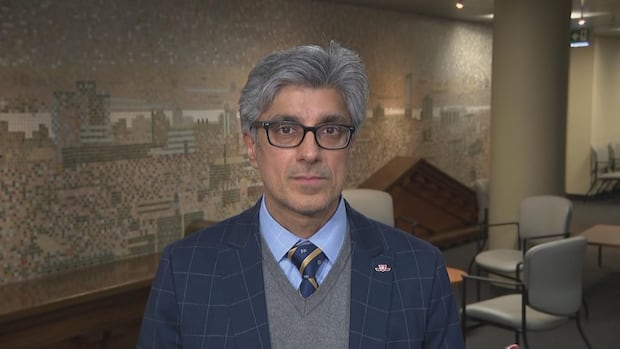
"WATCH | Why the TTC could see more slow zones: The TTC is gearing up for another one of its annual track surveys meant to spot minor defects before they balloon into bigger issues, and help bring tracks across the transit system back to industry standard. And that could mean more slow zones. Lali said Wednesday that fare revenue in July totalled $76.9 million and the transit agency saw an average weekly ridership of 7.9 million people a seven per cent increase from last year."
"TTC subways experienced over 93 hours of unplanned delays in July, CEO Mandeep Lali said at a board meeting Wednesday. The transit agency's September report, which focuses on subways, attributes 51 per cent of the holdups to external factors, such as disorderly patrons, the blocking of doors and unauthorized persons at track level. But Lali also said 49 per cent of the issues that led to delays on subways were operational, including equipment problems."
"The TTC is currently facing an $11.9-billion funding shortfall for state of good repair work over the next 15 years, according to a report presented to the TTC's strategic planning committee last week. At current funding levels, the TTC says it can't do track work at the rate it needs to maintain existing demands. That could lead to restricted speed zones, weekend or multi-day service diversions, as well as emergency disruptions, according to last week's report."
TTC subways experienced over 93 hours of unplanned delays in July. Fifty-one percent of delays stemmed from external factors such as disorderly patrons, blocked doors and unauthorized persons at track level, while forty-nine percent were operational, including equipment problems. The TTC faces an $11.9-billion state-of-good-repair funding shortfall over the next 15 years, limiting track maintenance and risking slow zones, weekend or multi-day service diversions, and emergency disruptions. July fare revenue totaled $76.9 million with average weekly ridership of 7.9 million; year-to-date revenue fell $25 million short of budget due to international student policy changes and hybrid work trends.
Read at www.cbc.ca
Unable to calculate read time
Collection
[
|
...
]